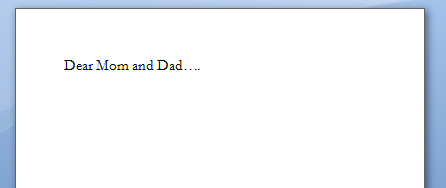Friday, September 28, 2012
Coming out pt 4 Hearing it ~Sevan
Posted by Sevan at 12:42 PM 0 comments
Labels: coming out, Family, family of trans, friends of trans, SOFFA, spouse of trans, transgender, Transsexual
Wednesday, September 26, 2012
Coming out trans* pt 3 Saying it ~Sevan
 Let me first say that
there is no possible way I can account for every unique situation...so I'm
going to do my best to keep this broad. There's no one right way for every
person to come out. There just isn't. Since my experience is primarily
with transsexuals/transitioning…I think my focus will be there. Not because I’m
trying to ignore the rest of the umbrella, but because I want my advice to be
sound, and based on personal experience/ knowledge.
Let me first say that
there is no possible way I can account for every unique situation...so I'm
going to do my best to keep this broad. There's no one right way for every
person to come out. There just isn't. Since my experience is primarily
with transsexuals/transitioning…I think my focus will be there. Not because I’m
trying to ignore the rest of the umbrella, but because I want my advice to be
sound, and based on personal experience/ knowledge. - Local support groups for spouses of trans* people, or
groups that welcome in spouses. (our trans* support group is open to
spouses as well, for example.)
- Susan's significant others online forum (parents
are also welcome)
- Laura's Playground Partners/SOs section of their
online forum
- Find a local PFLAG chapter
Posted by Sevan at 7:12 PM 0 comments
Labels: coming out, spouse of trans, transgender, Transsexual
Saturday, September 22, 2012
Gendered language ~Sevan
We will get back to our discussion on coming out soon, but I just created this graphic and I wanted to share:

Posted by Sevan at 5:15 PM 0 comments
Labels: androgyn, candiussell, Gender, gender expression, gender neutral pronouns, gender pronouns, genderqueer, pronoun chart, third gender pronouns
Thursday, September 20, 2012
Coming out Part 2 ~ Cynthia Lee
Coming out take 2 ~ Cynthia Lee
My coming out as Trans* to my friends and family was met with a collective ho-hum. I got many people who reacted in a way that indicated they were not surprised. One of my friends said to me “I knew this about you for years, I was afraid you didn’t know”. Another friend said, “That makes sense. This explains a lot.” Another friend asked, “What took you so long?”
I was rather stunned by these reactions. I thought I had done a fine and dandy job of being manly and macho. I really thought that I had been successfully portraying a man to the world. Now that I have had time to reflect on my life pre transition I see clear as can be that I was dropping hints to my true gender my entire life. All my life I was actually playing the part of a man and doing it very poorly it turns out. I had expected them to attempt to defend my ‘manhood’ and try to convince me I was nuts. I expected the same treatment that most transsexuals deal with. Rejection and transphobia were what I expected but I was given love instead.
In the end I have lost no one to my coming out. All of my family and friends accept me as Cynthia. This was anti-climatic. I had prepared for ultimate rejection and being challenged, or dissuaded from my transition. I had not prepared for being accepted and loved unconditionally. It was very wonderful and awesome that I have kept my friends and family, but I had not prepared myself for this outcome. Person after person that I came out to were ok with me transitioning. In a way, it was a tad aggravating. What do you mean my portrayal of ‘man’ was so lousy that no one was buying it!??! I was so sure of the excellent job of role-playing ‘man’ that when I discovered that it was not excellent it kinda miffed me a bit. Nevertheless, it should come as no surprise. Women are not men and they do a lousy job of being men full time. Sure, some women can play the part of a man for a while, but no woman can live as a man 24/7 and not let her guard down and let the woman inside out on occasion. Turns out that I was showing the inner woman, I was letting her out on a daily basis.
Therefore, my gentle reader I want to boil it down to this: You have no idea if your friends and family will accept you or reject you until the moment of truth. It is worth the chance you take and it just might end with acceptance.
Posted by Unknown at 3:29 PM 5 comments
Labels: coming out, transgender, Transsexual
Monday, September 17, 2012
Coming out trans* pt 1. It's personal ~Sevan
This is a tough topic for me to cover because of how vast and
individual and unique each person, and each coming out is. It's going to vary
depending on what state (with what rights) you're in. How old you when you
start coming out you are; will play a role. Plus many other things will come
into play when we talk about coming out.
Posted by Sevan at 12:35 PM 0 comments
Labels: coming out, Gender, gender expression, lesbian, transgender, Transsexual
Wednesday, September 12, 2012
Bisexual and Pansexual..same thing? ~Sevan
I've noticed an issue that seems to be coming up to a fever pitch lately...and it's an issue between two sexual identities. Bisexual
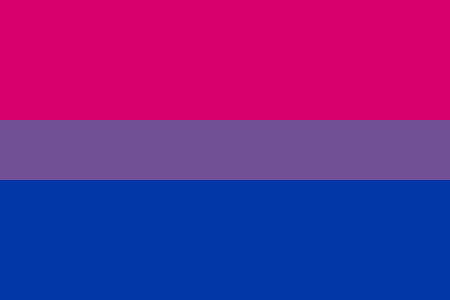
and Pansexual.
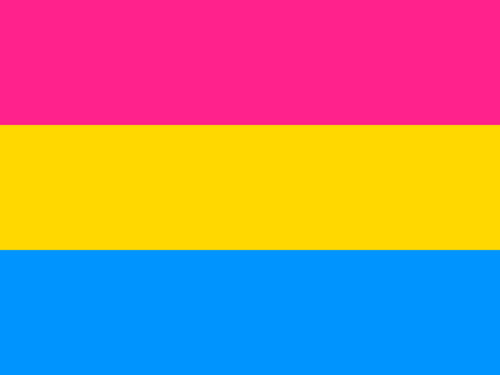
What I'm hearing so far...the argument goes a little like this:
Pansexual: Since Bi means "two" it's binary, and not inclusive of trans* and other identities.
Bisexual: That's not true!!! How dare you tell us what our identity is! Bi can mean two..sure, but as in "same as, and different than...which includes everyone!
Pansexual: Dude...chill out. It's fine if you don't dig trans* people...every gender/sex isn't for everyone. It's fine. Don't sweat it.
Bisexual: Why are you being insistent on Bi-erasure!!!!
Ok so that's a SERIOUSLY over simplified version, and only from my perspective...and I'm pretty sure I'm missing some of the information since this whole disagreement really makes no sense to me at all. The way I'm seeing it is that many Bi people seem to feel/believe that Pansexual IS the same as Bi, and therefore, there's no need for the additional sexuality.
Also, bi-erasure is in there somewhere...and trans* politics being put above bi politics is also in there somehow.
Now that it's all clear as mud...you're on the same page as me.
As a trans* person, let me tell you about some of the relationship types I've seen. I've met a couple who was straight. One was pre-everything trans woman, and a cis man. His sexual identity never changed to encompass his trans wife, because she's a woman regardless of her body.
I know a few couples that are gay men that are with trans guys, and they felt no need to change their sexuality due to dating trans guys...because trans guys are GUYS.
As a genderqueer person, who's married to a trans*woman. I personally identify as pansexual. In LGBT spaces I often identify as Queer because it's easiest...I'm genderqueer, I'm pansexual, I'm polyamourous...I'm Queer!
If someone's identity is bisexual, and they feel they can and/or have been attracted to trans* people and feel their identity is bisexual. Awesome. That's great for them. I would never presume to tell someone what their identity is.
To me, looking at a word in a literal manner...bi means two=binary man/woman system. That's what it means to me which is why I don't feel it fits me. If it doesn't mean that to you, that's ok. We don't have to use just one word at a time to understand each other. We can, in fact...have whole conversations with many words in order to get our point across and see eye to eye.
Once again I'm so happy for the community I'm a part of. The organizations I interact with actively seek out participation who are gay, lesbian, bi, and trans*. All are equal and important. I don't understand why it seems to be this way elsewhere, or at the very least...just that some seem to feel it to be this way. We really really can get alone and work together for better visibility. Honest.
Monday, September 10, 2012
Pronouns (yes...again.) ~Sevan
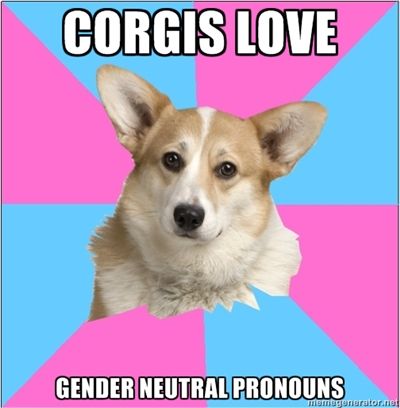 And I've been grateful, happy, thankful, and frustrated all simultaneously. Grateful, happy and thankful because "wow! You're asking me, and that's so respectful and awesome that you thought to ask!" and frustrated because..."Wow...I don't like the words I've got available to me."
And I've been grateful, happy, thankful, and frustrated all simultaneously. Grateful, happy and thankful because "wow! You're asking me, and that's so respectful and awesome that you thought to ask!" and frustrated because..."Wow...I don't like the words I've got available to me."So humor me, if you might...and let's walk through my process and it's gone thus far.
My line of thinking started with "Well, men and woman don't get to decide; Hey! I hate the pronoun he or she! I refuse to use those!!" That's never happened. (I don't think...maybe it has. That'd be interesting..) and as such, I decided that maybe ze/hir just felt weird because it was new, and that maybe instead of reinventing the wheel...I'd just stick it out, and surely I'd get used to their use and all would be well!
Yea...hasn't happened. In fact, I've grown increasingly unhappy with them. Particularly hir. I hate that every time I say "hir" I feel the need to follow that with "and it's spelled h-i-r." or if I write it down, I feel the need to follow it with "and it's pronounced hear".
I don't like the way it feels in my mouth. I don't like the way it feels in my ears. I thought I'd like it. I thought I'd come around with use and normalcy. I've not. Ze is ok...I don't struggle with that, though it's odd to me as infrequently as we use the letter "z" in words...it almost feels like "Z's a weird letter that we never use...let's assign it to those weird people over there! How fitting"
And yea...likely that's just my mind. But that's what we're talking about right now isn't it? *My mind*, my process.
A non-binary acquaintance of mine has created the pronoun set "jhe/jher" but to my mind it sound...french. Or...something. I know it doesn't sound like it fits in English. I don't begrudge jher, and have no problem using jher set in reference to jher. I just don't like it for me. (though I would very much prefer ONE set that is for everyone...I have very little hope that's likely to actually happen...too many "hands in the pot"...as it were.)
In addition to this thinking process, and dislike of the words I've chosen to go with thus far...I'm rather unhappy to go back to all those people who have asked me what pronouns to use, and have done their best to use them, to please...switch.
That's what needs done though. That's what exploration is all about, isn't it? Going down a path to try it on, see if it fits, finding it doesn't, and trying something else.
So what do I propose instead? Why, I'm so glad you asked!
| He | She | Ze/Ne |
| Him | Her | Per |
| His | Hers | Pers |
As I said, to some extent; Ze doesn't bother me. The "Per/Pers" set does have "phe" that goes with it in place of He/She, but I can't really work with that so much. There was a time that I went by Phoenix, and Phe was the short "nickname" for that...and so in my mind it just hearkens back to that, rather than being a proper pronoun.
Posted by Sevan at 4:50 PM 2 comments
Labels: gender expression, gender neutral pronouns, genderqueer, ne, per, pers, transgender, ze
Monday, September 3, 2012
Gender expression examined ~Sevan
We've talked about many things about gender here on our blog. I think it's widely understood and accepted that gender identity center's in your brain. (as seen in the genderbread person)
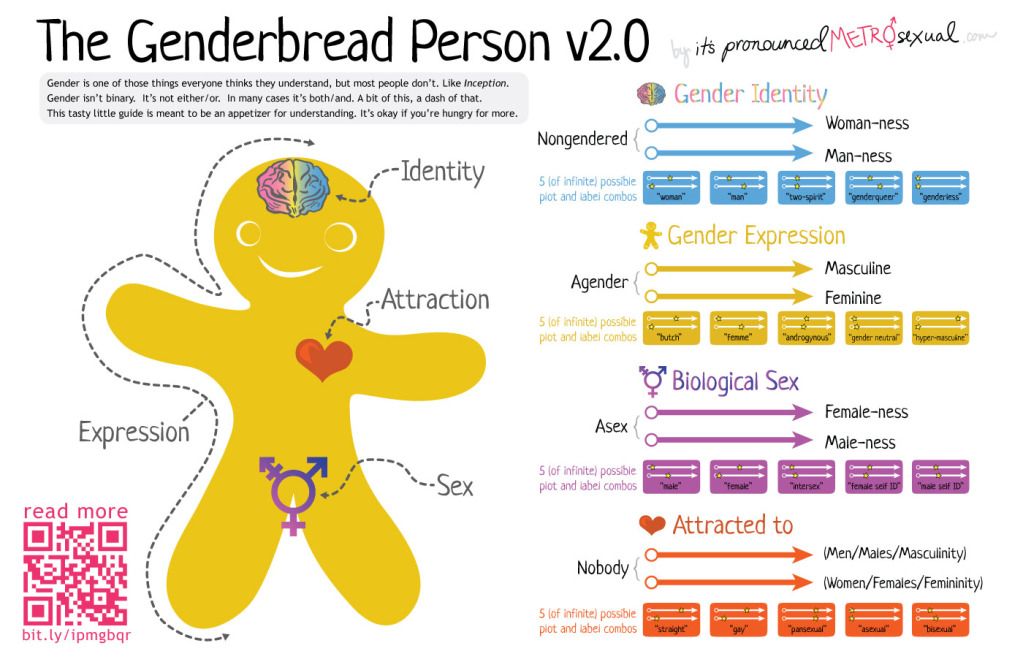 |
| Property of www.itspronouncedmetrosexual.com |
There are many things that go into how we express ourselves.
Not just gender.
I used WeeMee app to create my male and female expression...as an example of how I can vary from day to day. (though obviously...regardless of my expression, my favorite color is still blue. lol)

Posted by Sevan at 12:39 PM 2 comments
Labels: bigender, Gender, gender expression, transgender
